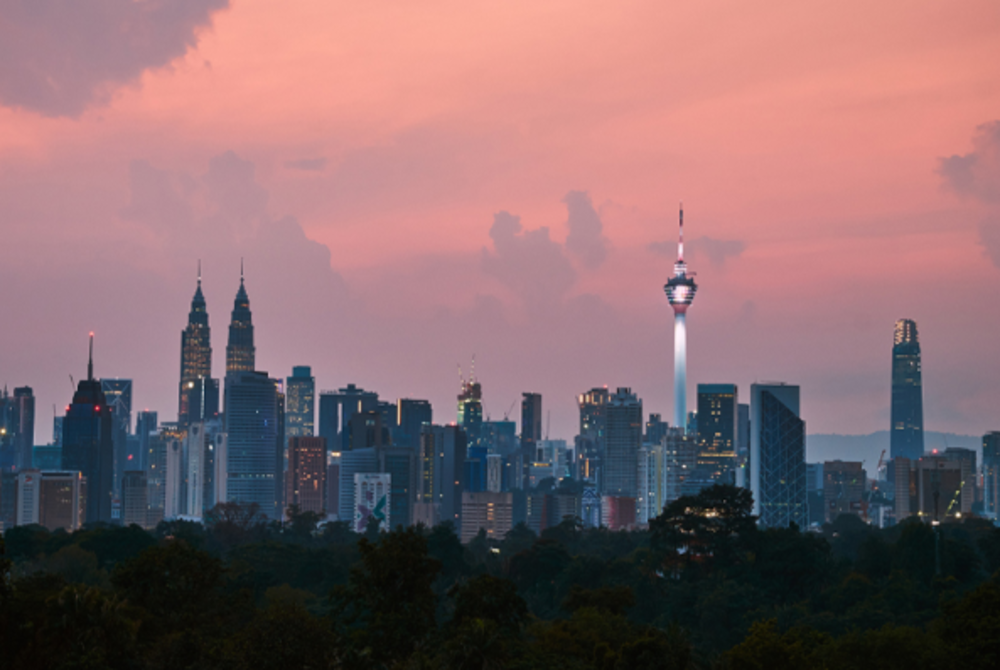Advancing Malaysia’s medical rehabilitation care
11 Oct 2022 08:41am

Image for illustrative purposes only - BERNAMA
A
A
A
In developed Asian countries such as China and South Korea, for instance, their healthcare environments provide a clear route for the full recovery of patients through systematic rehabilitation after being admitted to acute care hospitals for stroke and surgery as well as for orthopaedic, neurological and other conditions.
With Malaysia set to become a silver-haired nation by 2030 when 15 percent of its population turn 60 and above, the demand for rehab services, including comprehensive and intensive nursing care, is set to grow bigger.
Among the handful of hospitals in Malaysia specialising in medical rehabilitation is ReGen Rehab Hospital in Petaling Jaya, Selangor. Opened four years ago, the facility is owned by Regen Rehabilitation International Sdn Bhd, a joint venture between Khazanah Nasional Bhd and US-based post-acute care provider Select Medical International.
Incidentally, ReGen Rehab Hospital is the first private rehabilitation facility in Malaysia to be licensed by the Ministry of Health.
Its chief executive officer Mohamad Hanafi Salehuddin told Bernama in an interview that the hospital offers a full on-course structured rehabilitation programme that can be considered the "best chance for our patients to regain their physical and cognitive abilities”.
Rehabilitation aims to maximise functional health through evidence-based, outcomes-driven holistic care in a specialised environment, he said.
"The conditions we treat include stroke, post-traumatic injury and post-surgery as well as sports and orthopaedic and neurological conditions, and many others,” he said.
He explained that in general, inpatient rehabilitation spans two to four weeks, depending on the patient’s condition and treatment plan.
Rehabilitation for stroke patients would take a longer period, he said, adding that each rehab programme is tailored to support the patient’s recovery goals.
Among the rehab programmes offered by the hospital is neuro rehabilitation, where patients with conditions such as brain injury and trauma, spinal cord injury, Parkinson's disease and motor neuron disease are treated.
This programme also offers post-coma rehab as well as cognitive and behavioural therapy, robotic and virtual reality therapy, and non-invasive brain stimulation and balance training services.
Mohamad Hanafi said medical rehabilitation is one of the most requested services by the hospital’s inpatients. Here, the rehab is directed at post-surgical, cancer, cardiac and geriatric patients.
"We also offer orthopaedic rehabilitation to treat a wide range of musculoskeletal conditions. This is beneficial for those who have just had their joint replacement surgery or have had a fracture or are facing chronic back and neck pain and also work-related injuries,” he said.
"We are also collaborating with Socso (Social Security Organisation) via the Return-to-Work programme to treat workers who have sustained work-related injuries.”
Meanwhile, ReGen Rehab Hospital chief medical officer Prof Dr Lydia Abdul Latif said its state-of-the-art exoskeletal robotic walking programme enables patients with spinal cord injuries, stroke or other conditions affecting their ability to walk to relearn to stand and shift their weight, as well as relearn stepping patterns for walking.
"The underlying principle behind this is that repeated mass practice will lead to motor recovery. Recovery of motor function is dependent on the interrelationship between dosing, intensity and task-specific practice applied during rehabilitation,” she explained.
Exoskeletal robotics, she added, helps patients to build neuronal plasticity, resulting in skill acquisition through increasing repetitions and intensity, thus enabling them to recover faster.
In advancing medical rehabilitation beyond the borders and benefiting from the healthcare tourism sector, Mohamad Hanafi said as a member of the Malaysia Healthcare Travel Council, ReGen Rehab Hospital has leveraged and made significant inroads into the Indonesian market, which is one of the key markets identified under the wider Asean market.
He said there is a huge addressable market for medical rehab in Indonesia, given that stroke is one of the leading causes of morbidity in the country.
"As our country looks to fortify the healthcare travel ecosystem, I believe medical rehabilitation tourism is a niche and integral touchpoint that would amplify our Malaysian healthcare equity and offerings in core markets as a competitive advantage.
"We brought in the medical rehab tourism agenda as our unique proposition to the market. And, since the reopening of Malaysia’s borders, our healthcare system has experienced an influx of international patients once again, which is key to revitalising the nation’s economy and healthcare tourism (sector).
"Malaysia offers world-class quality, accessible and affordable healthcare services, including medical rehabilitation, to international patients,” he added. - BERNAMA














